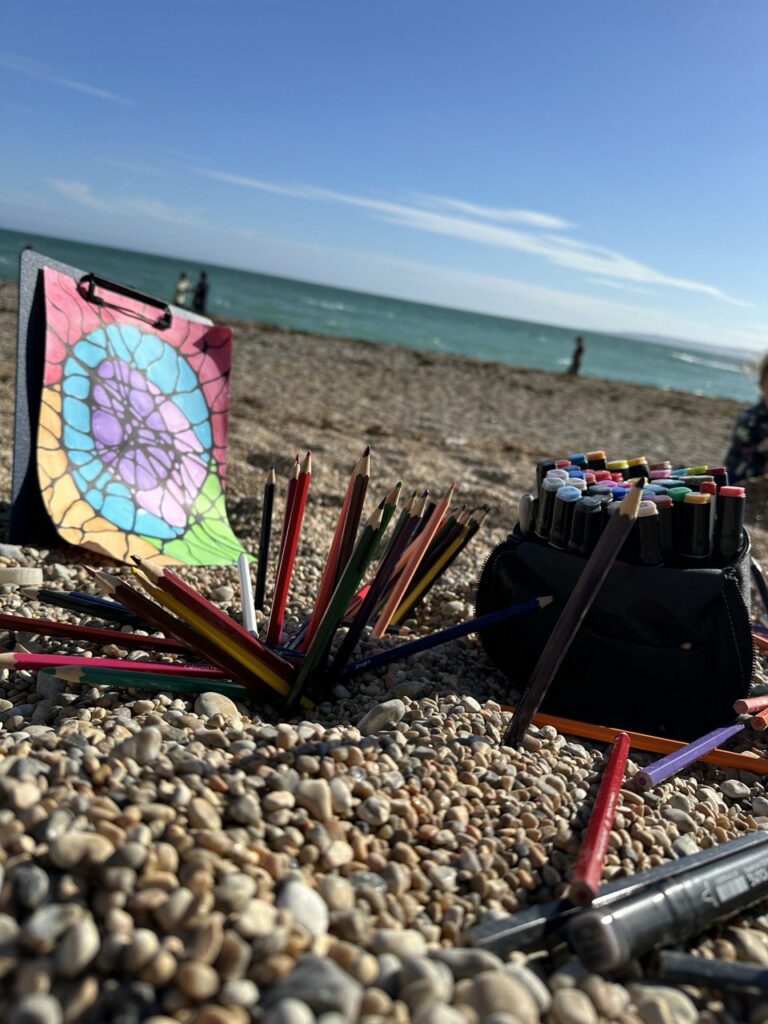
Not long ago, I was working as a teaching assistant at a school, and I had never even heard of Neurographica. I generally liked my job, but there were some downsides.
Firstly, I worked six days a week from morning until evening and often stayed late without being paid for the extra hours. I was so exhausted that I had no energy or time left for my personal life.
I would come home, and my little seven-year-old daughter would ask for hugs, love, and affection, but I simply didn’t have the strength. I was consumed with guilt, knowing I was repeating my mother’s fate. She worked so hard that I hardly got any of her attention, leaving me with a lifelong feeling of rejection, thinking I wasn’t needed by her.
But I felt trapped in this situation. I believed I couldn’t leave my job because I had a contract, and since I didn’t know British law, I was convinced that if I broke the contract, I’d end up in prison. Yes, immigrants often have many fears stemming from a lack of knowledge.
On top of everything, a younger colleague at work took a dislike to me. She was 20 years younger and constantly tried to sour my mood. She would smile through gritted teeth, refuse to speak to me, and regularly reported me to the management. I felt hurt by her behaviour, believing there was something wrong with me for her to treat me that way. Later, I learned that she was on the autism spectrum and behaved that way towards everyone, but at the time, I took it very personally.
Eventually, I became emotionally and physically drained from the job and saw no way out.
Then, one day, a friend of mine reached out and suggested I try Neurographica. I was sceptical at first because all I knew about it was a video of a woman drawing squiggles with a green marker and talking about attracting money.
However, out of respect for my friend, I decided to look into it. A week later, he suggested, “Why don’t you change jobs and start practising Neurographica?” I told him that wasn’t possible because of my contract. That’s when he gave me a “green triangle.”
This is an algorithm called “Breakthrough.” You draw it with a green marker, and it triggers rapid positive changes. There is always some turbulence, but everything works out for the best—if, of course, the person is willing to act in the new circumstances.
So, I drew this triangle. The next day, a major conflict erupted at work. My colleague again reported to the management that I was supposedly attending to personal matters during work hours. My manager called me in, and I broke down, explaining that I had been living in hell for six months. She understood everything and sent me home. I took a day off to recover and decided the next morning that I was quitting.
My friends supported me, reassuring me that my fears about prison were unfounded. On the contrary, I was let go amicably, given paid leave, and everyone was very nice to me to ensure rumours of workplace bullying wouldn’t damage the school’s reputation.
And now, I am free, and I realise how much that job was stifling me. I understood that I could offer so much more to people than just filling in Excel spreadsheets.
My husband supported me emotionally and financially, and now I am truly happy. My children receive enough warmth and support. There is always delicious food at home, not just quick-fix pasta. Most importantly, I’ve become a Neurographica specialist and am helping people deal with their problems to the best of my ability. Depression, apathy, anxiety—all these can be swiftly addressed with Neurographica. And I’ve worked through countless personal traumas myself, but that’s another story entirely…